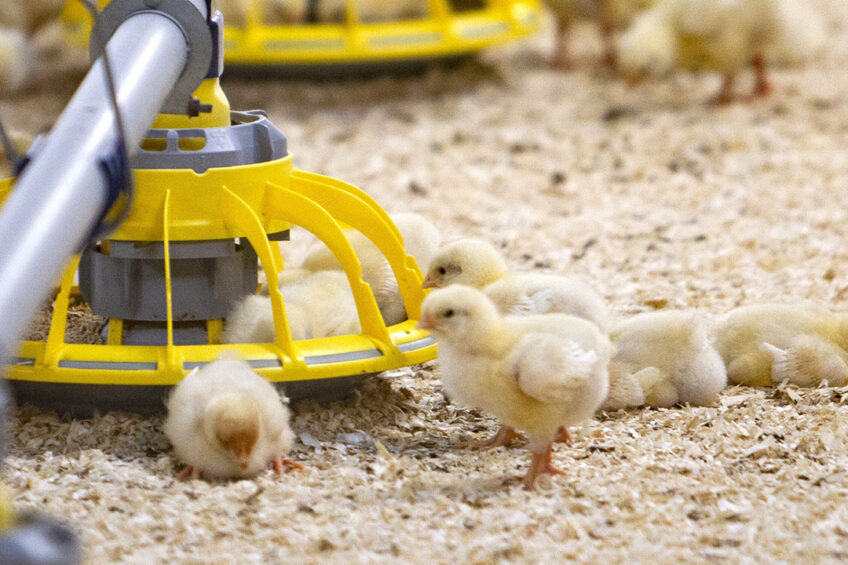Scientists rekindle interest in bacteriophage treatment in poultry

Increasing concerns over the effects of primary contaminants in poultry, such as Salmonella enterica, Cambpylobacter jejuni and Escherichia coli, have prompted scientists to rekindle their interest in using bacteriophages as antimicrobial agents.
This is due to their pathogenicity and widespread nature, which contributes many economic losses as well as posing a threat to public health. With the increasing prevalence of bacterial pathogens being resistant to most conventional antibiotics, bacteriophages are being investigated as an alternative to antibiotics in the poultry sector.
Bacteriophages’ high specificity may allow them only to target a specific bacterial pathogen in the infected animal, but a tailor-made sophisticated cocktail of different bacteriophages could broaden their antibacterial activity in a typical situation with multiple clinical strains infections.
Bacteriophages can also be used as safe disinfectants to reduce contamination on food contact surfaces or poultry carcases, but until now, have not been developed sufficiently for widespread use. This has been down to problems with resistance, safety, specificity, and long-term stability.
Scientists from across the globe, led by Professor Amr Abd El-Wahab, from Mansoura University in Egypt, carried out a desk review highlighting the benefits, challenges and current limitations of bacteriophage applications in the poultry industry.
Study
The scientists found the most alluring quality of bacteriophages is their capacity to destroy only their targeted bacteria, avoiding the main issue directly related to the use of antibiotics, which is the impact on the entire microbiome. Bacteriophages are also believed to be substantially safer and more tolerable because they exclusively multiply in the particular bacterial cells that they are intended to infect.
But they do have their limitations as it is challenging to prepare bacteriophages for therapeutic applications and not all issues directly related to the biology of the viruses have been resolved. Their level of specificity means that they are not so useful when used to stop infections caused by several harmful bacteria that are often found in clinical cases.
Conclusion
The research suggests that although bacteriophage treatment for enteric disorders has had a high level of success, it has not yet reached its full potential.
This is because antibiotics usually work well against a wide range of bacterial species. Therefore, a specific selection is not necessary when using them to treat infections. Contrarily, bacteriophages typically target a single host and sometimes fail to eradiate all members of a given bacterial species.
However, given the growth in antibiotic resistance, bacteriophages might be able to operate as a last line of defence when antibiotics are either not available or inefficient.
Regulation and legal uncertainty
One of the most significant limiting factors to the widespread use of bacterial viruses is the regulatory status of bacteriophage products. While being given the green light by the US Food and Drug Administration and support from Switzerland, Israel, Canada, Australia, New Zealand and Brazil, the situation is less clear in the European Union.
The European Food Safety Agency evaluated a bacteriophage application against Listeria as being safe in 2016. However, there is currently no regulatory pathway open to register a bacteriophage-based product, as there is no consensus on how such a product should be regulated, no matter whether its use as a feed additive, as a pre-harvest intervention or as a post-harvest application is considered.
This legal uncertainty slows the development of commercially available bacteriophage products in Europe. But the European Medicinal Agency has started to work on a concept paper on the quality, safety, and efficacy of bacteriophages as veterinary medicines, which may open doors in the future.
With the restriction or elimination of antibiotic use in food animals, researchers have been looking into the use of bacteriophages to manage food-borne infections. It is still necessary to address such issues as safety, specificity, and long-term effectiveness before using bacteriophages in poultry production. However, a breakthrough in this area is urgently needed due to the limited availability of innovative antimicrobial drugs and the widespread resistance among many pathogenic Enterobacteriaceae.
*The report can be found at Frontiers: An overview of the use of bacteriophages in the poultry industry: Successes, challenges, and possibilities for overcoming breakdowns.













